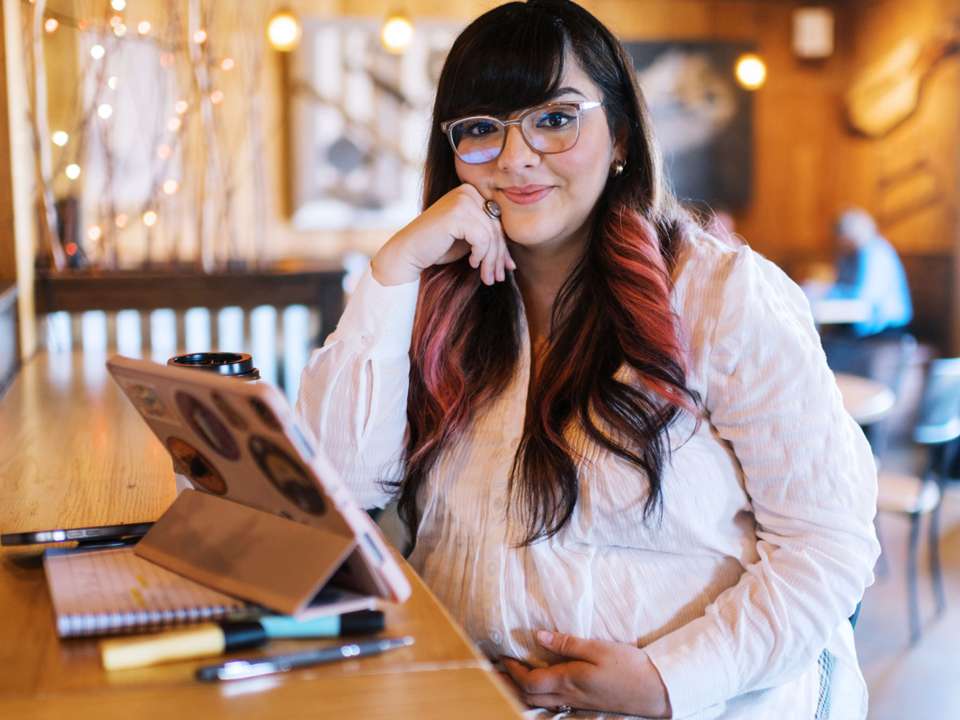
Sore thumbs from endless swiping? Emotionally exhausted from yet another bad first date conversation? The process of finding a long-term partner can be … a lot. While you’re looking for love, you’re also looking for those glaring red flags that could strain your relationship down the line.
Thanks to the Seattle Freeze, many Seattleites are extra reliant on the apps, where you’re likely to encounter everyone from tech bros and gals to crunchy granola hikers. Considering how polarized society is these days, the stakes can feel high for finding someone compatible, especially if you’re concerned about matching values (or if you’re worried they’ll take you on a 10-mile hike ... after a drive up the mountains in their new Cybertruck).
But when the first date mainly consists of sharing cute photos of your pets and explaining your 9-to-5, it can be hard to know what questions to ask — and what not to ask — to figure out if today’s coffee date could be long-term relationship material.
The good news? You don’t need to have all the hard conversations during your first date. What’s most important is getting to know the basic likes and dislikes of the person across from you — and you might be surprised by whom you hit it off with.
Don’t treat your date like an interview
Even the most seasoned professional can find job interviews difficult, and the same goes for those who don’t know how to ask or answer questions from a potential partner. Pepper Schwartz, a researcher, author of books on sex and relationships, and professor of sociology at the University of Washington, says you shouldn’t create a long checklist of questions but instead ask the person about who they are, their favorite things to do and their favorite places to go.
“The more of a list you check off, the more tiring it is for you and your date,” says Schwartz. “Those checklist questions start to become very familiar and routine for you, and you want to find ways to stand out, instead.”
Don’t forget, this is a two-way street. It’s great to learn about their favorite vacation spot and their favorite books, but leave time for your date to get to know you, too. If you’re someone who asks a lot of questions when you’re nervous or excited, it can start to feel like an interrogation if you’re not also sharing about yourself. After you ask a few questions, see where the conversation goes, and give them some time to return the curiosity.
Do avoid the “big” questions
Remember — you’re not going to marry this person the day after your date. Because of this, Schwartz says that it’s not necessary to get into big, heavy conversations during your first date.
These days, it can be difficult to avoid big topics like politics and religion, especially when they seemingly dominate every news outlet, social media site and family dinner. If these topics come up naturally in conversation, that's completely fine: Feel free to dive into your philosophies, but don’t feel like you need to bring it up if it’s not a central part of your identity.
“If, of course, your whole life is built around your religion, then you might want to go to a dating site that is based on religious preferences,” she adds. “But if it’s not the most important selector, then I don’t know if it has to come up right then.”
It’s the same with politics.
“While I know some people need to have someone with the same political values as they do, it can be a complex answer,” says Schwartz. “There are some things you would agree on, some you may not, and so you might want to wait to find out if you’re generally attracted to this person — and if they’re attracted to you — before you get into deeper discussions.”
So, even if you’re itching to know the political leanings of your date, consider waiting to ask until you are certain there’s a spark between you two (and you’re sure it’s a relationship you are seriously considering pursuing).
Do pay attention to their answers
That said, ultimately, sharing values and goals will be important for a long-term relationship. Even if you’re not asking your date pointed questions like, “What age do you want to start having children?” or “What’s your relationship like with your mother?” on the first night, how they answer questions about what they like to do, who they want to spend their time with, and their favorite places to go can inform you about some of their values.
“We say we don’t want to marry ourselves, but in fact, most people do,” says Schwartz. “After all, you’re looking for someone to build a life together, and that means having lives that help each other establish a route to aspirations and dreams. Oddly enough, having the same religion or background may not be as important as having the same ambitions or vision of what home life should look like. It really depends on what’s important to you.”
Ultimately, you’re hoping to find someone to share your future with. It might be possible that your end goals are the same, and that your differing backgrounds might not impact your ability to get there as much as you think they would.
Do be realistic about the future
So, you had a great first date. You’re attracted to them, they’re attracted to you, and you want to continue seeing this person. You may decide to go on another date or two, but now that you know the person better, it’s time to start thinking about the more difficult questions.
“Dating is an art, not a science,” says Schwartz. “But there are certain rules that are risky to violate. If you can see that you both want very different lives — for example, you want to travel the world, and your date comes from a big family and wants to settle down in a family compound and stay there — it’s best not to start a serious relationship.”
If religion, children or politics don’t guide your life, it may not be important in your decision to pursue or walk away from a relationship. But if you dream of having a house full of children and someone doesn’t want kids at all, you can immediately see that your goals are different.
Don’t put attraction above the basics
When you’re not completely mesmerized by the person, deciding not to continue pursuing the relationship will be easier than when you’re deeply attracted to them.
Schwartz says that pure and deep attraction often makes us feel that we can make anything work because we’re so head-over-heels fascinated by someone. However, the things you ignore in the beginning may cause you real disappointment when you ultimately realize that to be with this person, you would have to forgo something critical to your happiness.
“Going back to the example of people who want kids and people who know they do not — just hoping that someone will change their mind is not a good reason to let yourself go deeper in the relationship,” says Schwartz.
And sure — sometimes you won’t always know how deeply you hold certain beliefs or your long-term life plans at the time of the first date.
“Give yourself a little breathing room, lighten up, and just see if this person is interesting and fun to know,” Schwartz says. “You can know deeper facts and feelings if you go on at least a few dates with a person who interests you.”

 Healthy ideas for your inbox
Healthy ideas for your inbox





